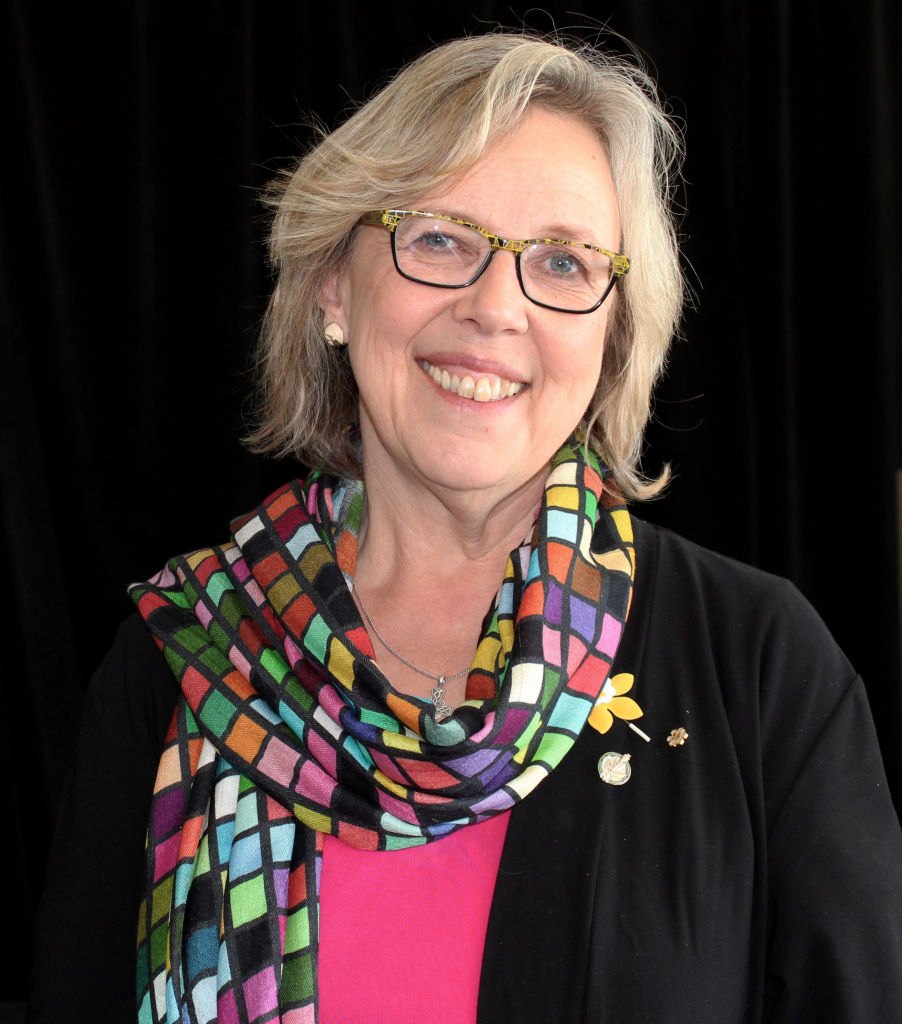 Algonquin’s Earth Allies group invited Green Party leader Elizabeth May to talk to students about green initiatives April 13.
Algonquin’s Earth Allies group invited Green Party leader Elizabeth May to talk to students about green initiatives April 13.
May stressed the importance of the Paris Agreement on climate change from this December and the need for citizen pressure and advocacy to make sure that commitments are followed through.
“The Paris talks were a turning point and now we have a change to save ourselves,” said May.
May brought her welcoming sense of humour with her along with the answers to many of student’s questions and concerns for the environment.
May, an MP, environmentalist, lawyer, activist and the leader of the Green Party of Canada, has a long record as a committed and dedicated advocate for social justice, the environment, human rights, and pragmatic economic solutions.
The Paris Agreement will be signed on Earth Day, April 22, in New York City this year by Prime Minister Justin Trudeau.
May urged everyone to continue to ask questions and put pressure on the government, even after the Paris Agreement is signed.
“We have a very good prime minister, who I believe cares about climate change. But we need to increase citizen pressure to make sure something is done,” said May. “The real urgency is that we need to get off of fossil fuels as soon as possible. And to do that we need to get excited about the cleaner ways we can do things.”
When asked about the new federal budget, May called it “deeply disappointing.”
She said that there wasn’t enough focus, incentive or urgency for green initiatives.
“We used to see rebates for energy efficient cars. We don’t see that anymore,” she said.
A student also asked May about what gives her hope with the new Liberal majority government in place, especially in relation to Bill C-38.
“I really think Justin Trudeau is one of the reasons that I have hope,” she said. “I really believe that he wants to do the right thing. And I’m an opposing party leader so I should be taking shots, but this is too important for partisanship.”
May has been leading the charge against the bill, particularly in the area of environmental assessment, saying the changes will only create more problems. When the bill was presented for the first time, she had over 300 amendments.
In an interview with the Times, May said that talking to groups of students like those at Algonquin is a priority to her.
“I don’t think of it in terms of my position or the campaign, I think of it in terms of survival. We are literally in the ultimate time crunch as a species. We have the opportunity to save ourselves. And I will never say that I am too busy to talk to anyone,” said May.
When asked what advice she would give to young people who are trying to evoke change, May said that it is about working together.
“Citizen activism is really something that is possible for absolutely everyone. Find people who are like minded and join together,” she said.
She also stressed how important and effective letters can be. She referenced the nation-wide campaigns for campus divestment and emphasised the challenge that environmentalists face when trying to educate people about what is really going on.
“I know it’s doable, so I hope this is a message of hope and not doom and gloom,” said May. “And I will never be too busy to talk to people and share information because it is just too important.”


